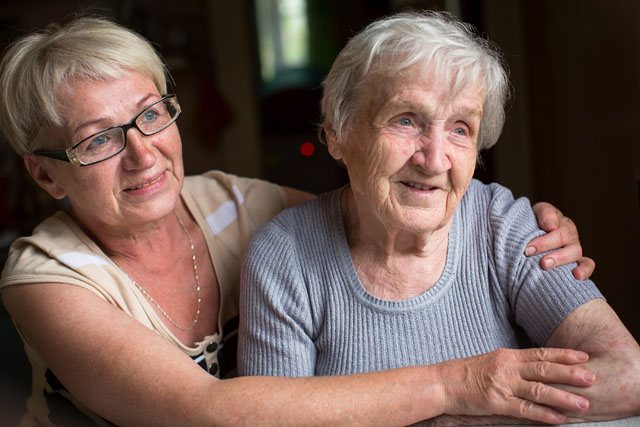It’s reasonable to keep your aging parents at home as long as you can do so without endangering yourself or them. Many caregivers run themselves ragged trying to keep loved ones, especially seniors, out of assisted living or nursing facilities. Caregiver burnout is common, as is the development of serious health issues among caregivers. There are, however, some ways to facilitate keeping your aging parents at home.
Safety is key! No matter what you promised your parents during better days, if you are unable to care for them properly and in a safe situation, then no amount of guilt avoidance is worth the risk. Pace yourself and take steps to keep yourself healthy, as well. Here are some tips to help you lower your stress, keep your sanity, and keep your elderly parents at home as long as you can.
Get the big picture
It’s difficult to see the big picture when the details of the little picture are overwhelming. It’s crucial, however, to understand how much care your parents really need and how much care you can provide without risking a decline in your own health.
Take time to list your parents’ routine and the tasks you do for them. Do this for a few days or a week. Then sit down and make a schedule. Do you need daytime, nighttime, or 24/7 help? Are you doing okay for your parents but barely have time to brush your teeth? Taking time to get the big picture might make the difference in how long you are able to keep your aging parents at home.
Get real
Once you understand clearly the needs of your parents, do the same exercise for yourself until you get the big picture of how much you can give without risking burnout and your health.
In the American South it’s considered polite to ask someone you meet, “Hello. How are you?” Never mind that they might have cancer, bunions, hangnails, dysentery, and back spasms. The polite response is, “Fine. And you?” Polite, but hardly realistic. Get ready and get real if you want to find the help you need.
Streamlining and recruitment
Once you determine how much and what type of help you want, start recruiting the helpers you need. Be clear and sincere about what you will need from them and when you will need it. And be patient. Good help is often hard to find but well worth the wait.
For professional and compassionate assistance caring for your loved one, please call Home Helpers or visit our website today.
Home Helpers of Bloomingdale and Wheaton is a locally-owned, trusted home health care agency and offers quality, compassionate senior in-home care services including home care assistance, personal care, companion care, respite care, Alzheimer’s & dementia care as well as homemaker services in Aurora, Bloomingdale, Hoffman Estates, Hanover Park, Wheaton, Bartlett, Itasca, Medinah, Naperville, Plainfield, Roselle, Schaumburg, Warrenville, Mooseheart, West Chicago, and Winfield.






